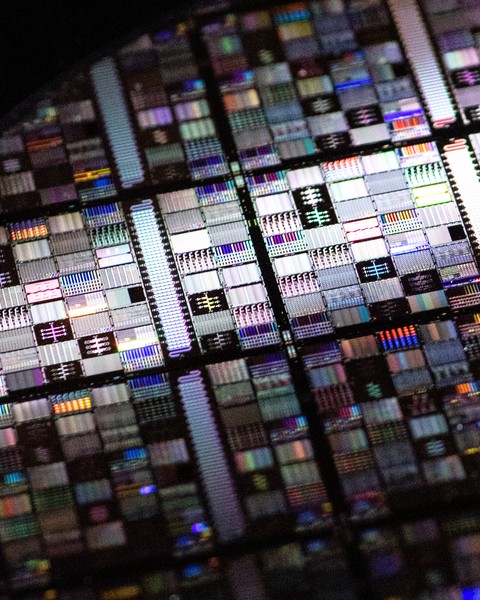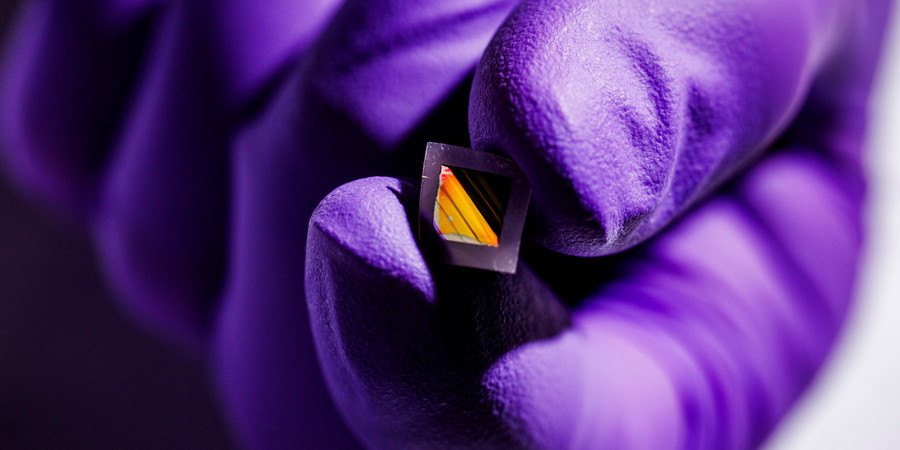July 5, 2023
In the past three decades, quantum computing has grown from a theoretical fantasy to a worldwide industry, pushing closer to a technology that could one day solve problems too complex for even the most powerful supercomputers. MIT Lincoln Laboratory is not only at the forefront of research, but is making quantum research accessible to a broader community through its Superconducting Qubits at Lincoln Laboratory (SQUILL) Foundry.
Quantum bits (qubits) are building blocks of quantum computers, like transistors are to classical computers. There are many ways of making a qubit; one of the most promising is superconducting qubits, which are generated by using circuits made out of superconducting elements. The qubits are fabricated using techniques similar to conventional microelectronics fabrication, such as depositing and etching thin metal films on a substrate. Then, they are operated at near-absolute zero temperatures to form “artificial atoms.”
Realizing the promise of quantum computing requires fundamental research and experimentation using these and other qubits. But superconducting qubits are tricky to build, and a major barrier for scientists wishing to pursue this research is the expensive tooling and specialized processes needed to fabricate the circuits.
The SQUILL Foundry was stood up to remove this barrier. Sponsored by the Laboratory for Physical Sciences (LPS) Qubit Collaboratory, a National Quantum Initiative-funded center, the program makes Lincoln Laboratory’s cutting-edge fabrication capabilities available at no cost to institutions working on U.S. government-funded research. Researchers can submit quantum circuit designs for fabrication, and the completed circuits are returned to advance scientific inquiry in their home facilities.
Complete article from MIT News.
Explore
MIT Engineers Advance Toward a Fault-tolerant Quantum Computer
Adam Zewe | MIT News
Researchers achieved a type of coupling between artificial atoms and photons that could enable readout and processing of quantum information in a few nanoseconds.
III-Nitride Ferroelectrics for Integrated Low-Power and Extreme-Environment Memory
Monday, May 5, 2025 | 4:00 - 5:00pm ET
Hybrid
Zoom & MIT Campus
New Electronic “skin” could Enable Lightweight Night-vision Glasses
Jennifer Chu | MIT News
MIT engineers developed ultrathin electronic films that sense heat and other signals, and could reduce the bulk of conventional goggles and scopes.




